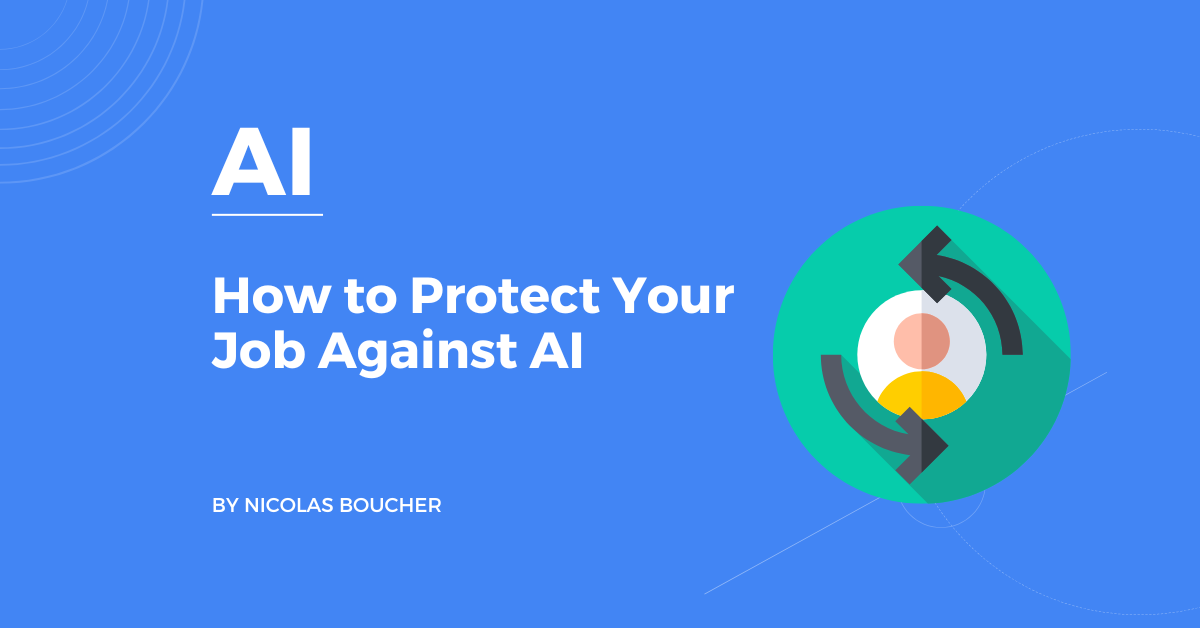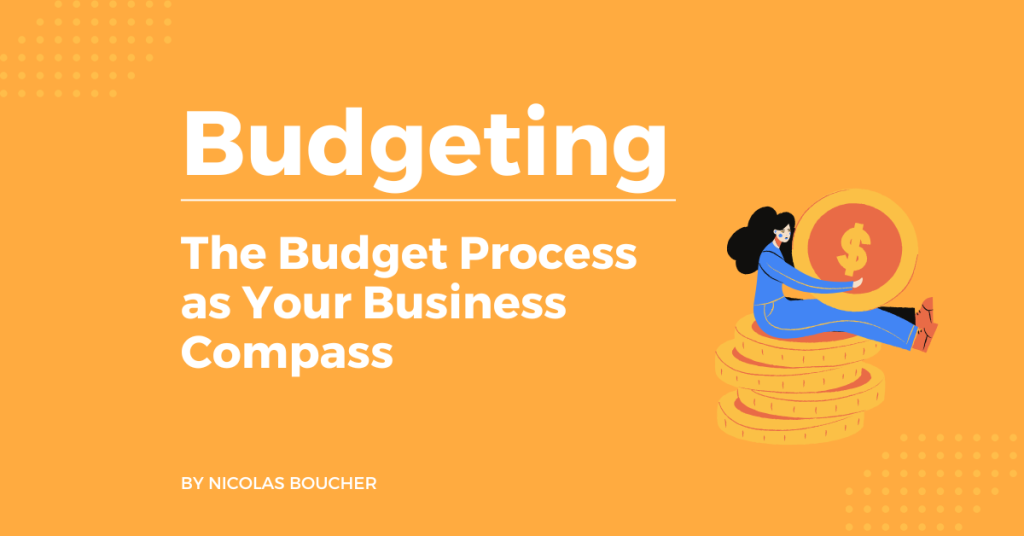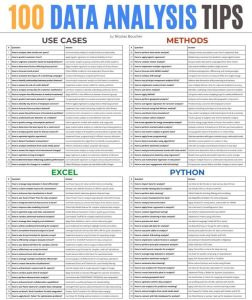AI is advancing at a staggering pace. Constantly, its capabilities seem to double, and it can already do things that were unimaginable just a few years ago: write and speak like us, generate images, and even write code.
Soon, AI will integrate deeply with our productive environments through APIs, handling mundane tasks on an unprecedented scale.
With these changes, it’s natural to wonder: how can you protect your job against AI?
The answer lies not in fearing AI but in harnessing its power and evolving alongside it.
Here are practical tips to safeguard your career and thrive in this AI-driven era.
Table of Contents
Why Is It Important to Adapt to AI?
AI is here to stay, and it’s reshaping industries at lightning speed.
For finance professionals, AI has already started transforming how we analyze data, make decisions, and automate routine tasks.
If we don’t adapt, we risk falling behind. But the good news is that AI also brings opportunities – if you know how to leverage it.
By learning, evolving, and using AI as a tool, you can enhance your role, contribute more value, and secure your position in this new landscape.
Long-Term Strategies to Future-Proof Your Career
Below, you’ll find 10 long-term strategies to ensure that you don’t just keep up with AI, but thrive alongside it.
#1: Embrace Continuous Learning
How to do it
Set up Google Alerts for terms like “AI in finance” or “Fintech innovations” to get daily updates. Follow industry influencers on LinkedIn or Twitter for insights. Dedicate time each week to read articles, attend webinars, or take courses that provide updates on AI developments in finance.
Why it is important
AI evolves quickly, and staying informed is crucial to anticipate changes and adapt effectively. Continuous learning will help you stay ahead of industry trends and position yourself as an informed finance professional who can leverage AI for better decision-making.
#2: Develop Technical Skills
How to do it
Spend 1-2 hours each week learning about tools like data analytics, machine learning, or automation. Practice using Python, Power BI, or similar tools to automate routine financial tasks.
Why it is important
AI is a technical field, and having practical skills will make a significant difference in your ability to leverage AI for automation and data analysis. By understanding these tools, you’ll be better equipped to use AI to optimize financial processes and make informed decisions.
#3: Enhance Your Soft Skills
How to do it
Join a Toastmasters club to improve your public speaking skills. Practice leading meetings, presenting data-driven insights to your team, or taking on more leadership roles in your projects. Seek feedback from colleagues to continually refine your communication and leadership abilities.
Why it is important
AI can’t replace human qualities like empathy, leadership, and communication. These skills are critical for leading teams, conveying complex financial insights, and adapting to change—all of which are essential for adding value beyond what AI can offer.
#4: Specialize in Niche Areas
How to do it
Identify niche areas within finance that require human judgment, such as ESG analysis or financial compliance. Take courses or get certifications in these areas, and seek out projects that allow you to apply your knowledge in a specialized context.
Why it is important
AI excels at data processing, but human judgment is crucial in areas that involve strategic decision-making, ethics, or nuanced regulations. By specializing in a niche, you position yourself as an indispensable expert who brings unique value that AI cannot replace.
#5: Leverage AI Tools to Boost Productivity
How to do it
Familiarize yourself with platforms like Microsoft’s AI Builder or UiPath. Use these tools to automate repetitive tasks such as data entry, financial report generation, or invoice processing. Experiment with AI tools to find ways to save time and improve efficiency.
Why it is important
AI tools can help you work smarter, not harder. By automating mundane financial tasks, you free up time to focus on strategic initiatives that require human insight, thereby increasing your value to the organization.
6. Focus on Data Interpretation
How to do it
Take a course on Power BI or Tableau to learn how to create dashboards that present data in an insightful way. Practice interpreting financial data and presenting it to stakeholders in a manner that drives business decisions.
Why It Is Important
While AI can analyze data, it still requires humans to interpret the results in a meaningful way. Your ability to present data-driven insights will make you a valuable asset to your team, helping them make informed strategic decisions.
7. Strengthen Problem-Solving Abilities
How to do it
Practice solving complex business problems by applying newly learned cost-control techniques or optimizing financial processes. Participate in problem-solving workshops or case studies to develop a structured approach to tackling business challenges.
Why It Is Important
Problem-solving is a uniquely human skill that is highly valued in finance. AI may provide data and analysis, but the creative application of these insights to solve business problems is something only humans can do effectively.
8. Adapt to New Technologies
How to do it
Attend industry expos, webinars, and virtual conferences to stay informed about the latest tools and technologies in finance. Experiment with new tools in a sandbox environment to understand their potential applications in your work.
Why it is important
Finance technology is evolving rapidly, and adapting to these changes is key to staying relevant. The more familiar you are with new technologies, the better you can leverage them to enhance efficiency and effectiveness in your role.
9. Network and Collaborate
How to do it
Join LinkedIn groups, finance-focused Slack communities, or professional organizations. Attend industry events, both in-person and virtual, to meet other professionals. Actively engage in discussions and contribute insights to build meaningful connections.
Why it is important
Human connections are irreplaceable, and a strong network can open up opportunities for career advancement, learning, and collaboration. Networking ensures you remain visible in the industry and helps you stay informed about new trends and opportunities.
10. Focus on Ethical AI Use
How to do it
Take courses on AI ethics from institutions like Stanford or MIT to understand the ethical implications of AI in finance. Apply ethical guidelines in your work to ensure compliance and fairness when using AI tools.
Why it is important
AI brings significant ethical challenges, especially in finance. Understanding and applying ethical AI practices will make you invaluable to your organization as companies strive to ensure responsible and fair use of AI technologies.
Take Control of Your Future
The AI revolution isn’t a wave to run from – it’s an opportunity to ride. By continuously learning, adapting, and using AI as a tool, you can protect your job against AI while also becoming more effective and valuable in your role. The future belongs to those who are proactive, curious, and ready to evolve.
Are you ready to take the first step? Start today by signing up for my 5-day course on AI for Finance, and let’s make sure you stay ahead in this rapidly changing world.















